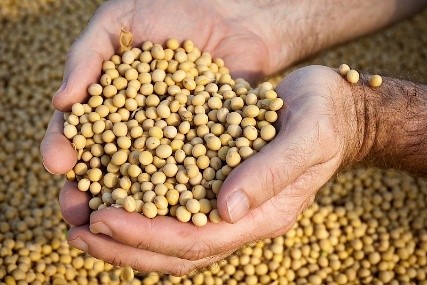Access to Markets - Benin
- Benin
- Resources
- Market Information
- Access to Markets

ACCESS TO THE BUSINESS MARKET
Images
ACCESS TO THE BUSINESS MARKET IN BENIN
There are many reasons to invest in Benin.
• A strategic geographical location
Benin enjoys a strategic geographical position in the West African space. Open to the Gulf of Guinea, it is a maritime gateway for the landlocked countries of the hinterland: Niger, Burkina-Faso and Mali. Its membership of WAEMU and ECOWAS opens up a potential market of more than 200 million consumers. It also has privileged access to the international market: advantages of the African Growth and Opportunity Act (AGOA), free access to the European market duty-free and quota-free thanks to the quotEverything But Armsquot initiative (ASD).
• A liberal economy
 Benin has made great efforts to improve its political and legal environment, its business climate and its facilitation services for investors. The marked improvement in the investment framework and the vast program of privatization and liberalization have enabled Benin to record a significant increase in the inflow of Foreign Direct Investments (FDI), although they are still low. The recovery of cotton production could also help sustain economic growth.
Benin has made great efforts to improve its political and legal environment, its business climate and its facilitation services for investors. The marked improvement in the investment framework and the vast program of privatization and liberalization have enabled Benin to record a significant increase in the inflow of Foreign Direct Investments (FDI), although they are still low. The recovery of cotton production could also help sustain economic growth.
• Expanding investment areas
Benin has a large yet untapped potential in several sectors of activity: agro-industry, tourism, mining, energy and hydrocarbons. The prudent withdrawal of the State from certain sectors with potential such as agriculture (cotton), telecommunications, port activities (management of the port of Cotonou), the banking sector or the energy sector also constitutes an opportunity for companies wishing to settle in Benin.
Investors are welcome
The authorities are clearly committed to attracting FDI. The investment code guarantees to any natural or legal person, national or foreign, the freedom to undertake, the freedom to manage and transfer capital, grants advantages to companies valuing local resources, the creation of jobs and value added. In addition, an initiative called “Territory Market” born of the national land development plan organizes the cities of Benin into regional centers whose vocations are determined by local potential. It is a Private-Public Partnership tool.
SOME BUSINESS OPPORTUNITIES IN BENIN AT A GLANCE
SOME BUSINESS OPPORTUNITIES IN BENIN AT A GLANCE
There are several real investment opportunities in Benin.
With regard to agriculture and agri-food, Benin has 80% of arable land of which only 20% is used. The cashew sector is an emerging sector in Benin, like those of pineapple, coffee, rice or cassava, thus offering enormous development potential. The cotton sector is the most developed in Benin. Cotton ginning offers real opportunities in two industrial sectors that are still under-exploited: textile fiber and oilseeds, which in Benin constitute examples of development and exploitation that are admittedly limited in number, but very convincing.
Concerning the field of breeding, there are possibilities for investors in the establishment of breeding farms and the production of dairy products. With regard to fishing, the current level of production is around 12,000 tonnes at sea and 30,000 tonnes in inland waters. There is a gap that could be filled by the development and promotion of fish farming. Thus the creation of cold chains for the conservation of fish products represents a promising niche.
Tourism in Benin is growing and presents very appreciable possibilities for exploitation, particularly in terms of hotel infrastructure, as well as in terms of leisure and discovery (coastlines, lagoons, waterfalls). Safari-tourism and cultural tourism (“slave route”, voodoo cult, fishing route, villages of the kings) can also, according to experts, be developed.
The liberalization of the telecommunications sector by the State has made it possible to diversify the offer, offering investors niches to develop. The mining sector presents enormous potential to investors. Several prospecting programs have been carried out and a map drawn up accordingly. Various resources have been identified (gold, iron, phosphates, construction materials and fossil fuels such as oil).
The same is true for real estate, where construction sites are scheduled or launched in housing, buildings and public works (BTP), low-cost housing, hotels, etc.

SOME PLANT, ANIMAL AND FISH PRODUCTION AGRICULTURAL EXPORTS IN BENIN MARKET INFORMATION SYSTEMS QUALITY ASSURANCE
AGRICULTURAL, MARKET, EXPORT, PRODUCTION, INFORMATION, QUALITY
Images
THE BENINESE AGRICULTURAL MARKET
The local market, made up of much more production from the primary sector (livestock, subsistence farming, etc.) is the first pillar on which the Beninese economy is based, according to recent statistics on the Beninese economy.
The export market is also a significant source of the national economy with products such as cotton which, for a long time, remains the main export product. Pineapple, cashew, cassava, textile products, palm products, cocoa and timber are also on the list.
SOME PLANT, ANIMAL AND FISH PRODUCTION
Productions | Achievements in 2015 (in tons) |
But | 1,286,060 |
Cassava | 3,420,665 |
Vegetable crops | 633 862 |
Cotton | 281,853 |
Oil palm tree | 116,331 |
Yam | 2,650,498 |
Cashew | 225 230 |
Eggs | 14,746 |
Milk | 112,958 |
Pisces | 45,281 |
Source: PSRSA evaluation report, 2016
AGRICULTURAL EXPORTS IN BENIN
Benin's agricultural exports are dominated by three commodity groups: cotton, oleaginous seeds and fruits (shea, cottonseed, palm kernel) and edible fruits (cashew nuts and pineapple). Cashew exports, for example, experienced a significant increase of 156% from 2011 to 2015. They rose from 51,348 tons in 2011 to 131,241 tons in 2015, with an annual average of 102,127 tons.
MARKET INFORMATION SYSTEMS
Market information systems facilitate market access. They help reduce information asymmetry and transaction costs. They improve individual decisions and contribute to the balance of forces present. Information mechanisms include:
- newsletters published by offices such as the National Office for Food Security or by projects such as the Support Project for the Milk and Meat Sectors (PAFILAV);
- the ESOKO platform, access to which is facilitated for certain producers by technical and financial partners such as the Belgian Technical Cooperation.
QUALITY ASSURANCE
Benin has a competent food safety authority, the Benin Food Safety Agency (ABSSA), set up by Decree No. 2011-113 of 8 May 2012.





